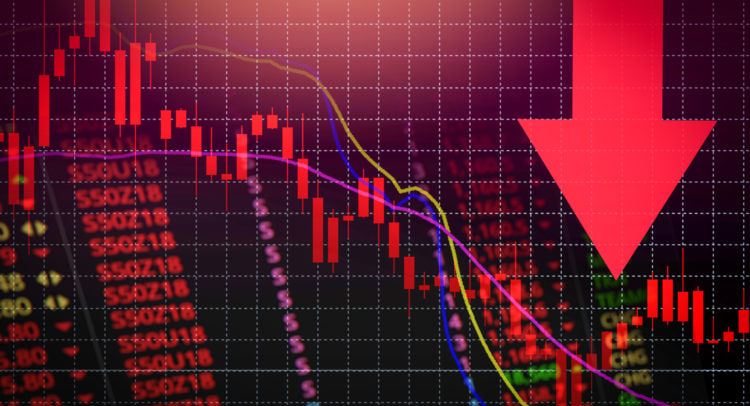Deciphering the European Stock Market: A Deep Dive into FTSE 100, DAX 30, and CAC 40
Meta Description: Navigate the complexities of European stock markets. This in-depth guide analyzes FTSE 100, DAX 30, and CAC 40 performance, offering expert insights and actionable strategies for investors. Learn about market trends, risk management, and long-term investment planning.
Forget the jargon-filled financial reports! This isn't just another dry analysis of FTSE 100, DAX 30, and CAC 40 performance. We're diving headfirst into the heart of the European stock market, uncovering the hidden currents that shape investor fortunes. Imagine yourself, armed with the knowledge to confidently navigate the sometimes treacherous waters of international finance. Picture this: you're not just reacting to market fluctuations; you're anticipating them, making informed decisions based on a deep understanding of the forces at play. This isn't a get-rich-quick scheme; it's a roadmap to long-term financial success, built on a foundation of robust analysis and practical strategies. We'll dissect the recent performance of the FTSE 100, DAX 30, and CAC 40, exploring the key factors driving their movements – geopolitical events, economic indicators, industry trends, and investor sentiment. We'll go beyond the numbers, delving into the human element: the psychology of market behavior, the impact of investor confidence, and the crucial role of risk management. Get ready to unlock your potential as a savvy investor, empowered by a clear and concise understanding of the European stock market landscape. This isn't just information; it's a transformative journey towards financial empowerment. This comprehensive guide will equip you with the tools and knowledge to confidently navigate the European stock market and make informed investment decisions, whether you're a seasoned investor or just starting your journey. So buckle up, and let's embark on this exciting exploration together!
Understanding the Major European Indices: FTSE 100, DAX 30, and CAC 40
The European stock market, a powerhouse of global finance, is largely represented by three major indices: the FTSE 100 (UK), the DAX 30 (Germany), and the CAC 40 (France). These indices aren't just numbers on a screen; they reflect the economic health and investor sentiment of some of Europe's most powerful economies. Analyzing their performance provides invaluable insights into broader market trends and potential investment opportunities.
Understanding these indices requires more than just glancing at daily fluctuations. We need to delve into their composition, the sectors they represent, and the macroeconomic factors that influence their movements. For example, the FTSE 100, heavily weighted towards multinational corporations, often shows resilience to domestic economic shocks. However, it's susceptible to global events and changes in currency exchange rates. Conversely, the DAX 30, with a strong presence of manufacturing and export-oriented companies, is more sensitive to global trade dynamics and industrial production. Finally, the CAC 40, with a blend of sectors, often mirrors broader European trends, but with its own unique nuances.
Here's a quick comparison:
| Index | Country | Focus | Sensitivity to |
|--------------|---------|--------------------------------------|---------------------------------------------|
| FTSE 100 | UK | Multinational corporations | Global events, currency fluctuations |
| DAX 30 | Germany | Manufacturing, export-oriented firms | Global trade, industrial production |
| CAC 40 | France | Diverse sectors | Broader European trends, domestic economy |
Thinking about investing? Remember, diversification is key! Don't put all your eggs in one basket. Spreading your investments across these indices can help mitigate risk and potentially enhance returns.
Recent Market Performance and Key Factors
The recent performance of these indices has been a mixed bag, reflecting the complex interplay of global and regional factors. While the CAC 40 has shown relative stability, the FTSE 100 and DAX 30 have experienced some volatility. This isn't surprising given the ongoing geopolitical uncertainty, inflation concerns, and the evolving energy landscape in Europe.
Several crucial elements have played a significant role in shaping recent market trends:
-
Inflation and Interest Rates: The persistent rise in inflation across Europe has prompted central banks to raise interest rates, impacting corporate profitability and investor sentiment. Higher interest rates can make borrowing more expensive for businesses, potentially slowing down economic growth.
-
Geopolitical Uncertainty: The ongoing conflict in Ukraine has created significant uncertainty, impacting energy prices, supply chains, and investor confidence. This uncertainty is a major factor influencing market volatility.
-
Energy Crisis: The energy crisis in Europe, exacerbated by the war in Ukraine, has placed a considerable strain on businesses and consumers. Energy price volatility is a significant driver of market fluctuations.
-
Technological advancements: Rapid technological shifts continue to reshape industries, creating both opportunities and challenges for European businesses. Investors need to stay abreast of these changes to make informed decisions.
Understanding these factors is crucial for making informed investment decisions. Don't just look at the daily numbers; dig deeper to understand the underlying economic forces at play.
Risk Management and Investment Strategies
Investing in the European stock market, like any investment, carries inherent risks. However, a well-defined strategy, combined with robust risk management, can significantly enhance your chances of success.
Here are some key strategies to consider:
-
Diversification: Spread your investments across different indices and sectors to mitigate risk. Don't put all your eggs in one basket!
-
Long-Term Perspective: Investing in the stock market is a marathon, not a sprint. Take a long-term view, focusing on sustained growth rather than short-term gains.
-
Regular Monitoring: Keep a close eye on your investments, but avoid making impulsive decisions based on short-term market fluctuations.
-
Professional Advice: Consider seeking advice from a qualified financial advisor who can help you develop a personalized investment strategy tailored to your risk tolerance and financial goals. They can help navigate the complexities of the European Markets.
Remember, investing involves risk. It is crucial to do your own research (DYOR) and seek professional guidance when needed.
Frequently Asked Questions (FAQ)
Q1: Which index offers the best potential returns?
A1: There's no single "best" index. The potential for returns depends on various factors, including your risk tolerance, investment horizon, and market conditions. Diversification across all three indices can be a prudent strategy.
Q2: How can I invest in these indices?
A2: You can invest in these indices through various instruments like Exchange-Traded Funds (ETFs) or mutual funds that track their performance. Consult a financial advisor for the best options.
Q3: Are these indices suitable for beginners?
A3: Investing in these indices can be suitable for beginners, but it's essential to understand the risks involved and diversify your portfolio. Consider starting with small investments and gradually increasing your exposure.
Q4: What are the major risks associated with investing in these indices?
A4: Major risks include market volatility, geopolitical events, economic downturns, and currency fluctuations. Proper diversification and risk management strategies are crucial.
Q5: How often should I review my investments?
A5: Regularly reviewing your investments is essential, but avoid making frequent trades based on short-term market fluctuations. A quarterly or semi-annual review is often sufficient.
Q6: What resources can I use to learn more about European stock markets?
A6: Many reputable financial news websites, investment platforms, and academic journals provide detailed information on European stock markets. Do your research and consult with financial professionals.
Conclusion
Navigating the European stock market requires a deep understanding of the underlying economic forces, geopolitical landscape, and individual index characteristics. By analyzing market trends, understanding risk management principles, and developing a well-defined investment strategy, you can significantly improve your chances of success. Remember, patience, discipline, and continuous learning are key to long-term financial growth in the dynamic world of European stock markets. Don't hesitate to seek professional advice and constantly adapt your strategy based on evolving market conditions. Happy investing!



